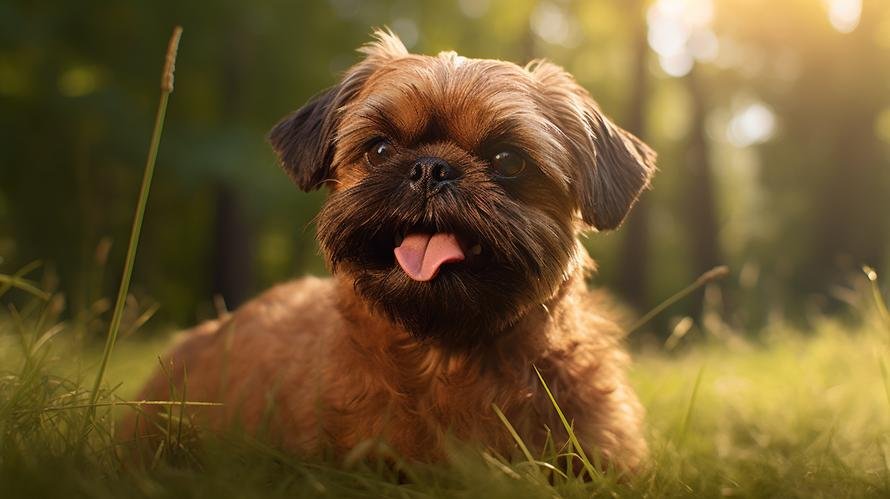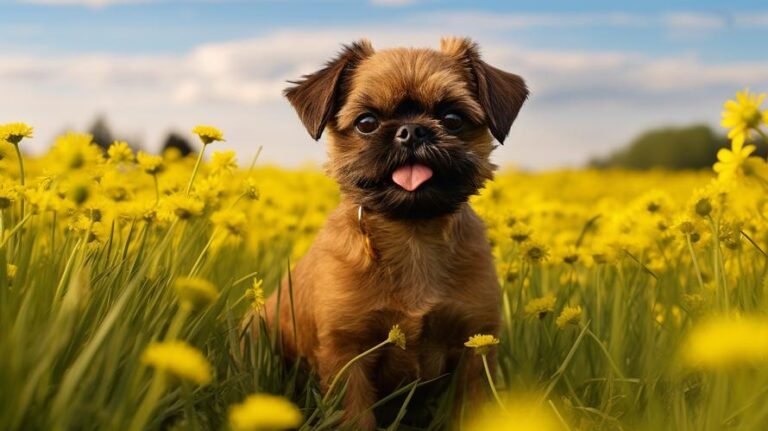When you first saw a squished little face of a Brussels Griffon, were you equally fascinated and intrigued? Well, who wouldn’t be? With their adorable monkey-like faces, these tiny canines have found a special place in our hearts. But that is not the detail we find most enchanting today. Interestingly, there’s a notion that these little furry cuties might even need special dog food!
Now, this may have sprouted endless questions in your mind. Why special food? What’s so special about the tiny Brussels Griffon that they can’t eat the same dog food as your loyal buddies like beagles or retrievers? Well, let’s journey together through this intriguing exploration of whether Brussels Griffons need special food or it’s another myth floating around.
Belonging to the breed of toy dogs, Brussels Griffons stand about 10 inches tall and weigh approximately 12-15 pounds. Consequently, their dietary needs differ significantly from large breeds. Historically, they were bred in Brussels, Belgium, earning them the name ‘Brussels Griffon.’ The breed was popular among cab drivers for their hunting skills, as they were instrumental in rat control, keeping their carriage clean and free from the pesky creatures.
Strikingly, a Brussels Griffon’s diet has always been a topic of debate among dog enthusiasts. This reaction is primarily due to their small stature that demands certain nutritional considerations.
Conventionally, many folks adhered to the idea of serving Brussels Griffon homemade meals. This practice still prevails in some areas. However, a primary concern usually eluded: Can you ensure that your homemade food contains all the necessary nutrients for your little pet?
Considering this, the present-day trend leans more towards commercial dog food. It is nutritionally balanced, offering your Griffon all necessary nutrients while also catering to their size and breed preferences.
Brussels Griffons, like other small breeds, possesses a fast metabolic rate than their large breed counterparts. In simple terms, they burn calories more quickly. Therefore, they require a diet rich in quality protein and fat, which commercial dog food provides in a balanced form. It aids their overall development, supporting lean muscle growth while also providing them with the necessary energy to keep their little tail wagging and spirits high!
The other nutritional component to be mindful of is the vitamin and mineral content, which fosters immune system functioning, healthy teeth, vision, and overall development. Though these little munchkins rarely overindulge, it’s best to monitor food portions regulating their weight and overall wellness.
So, while Brussels Griffons do not necessarily need ‘special’ food, it is essential to consider their small size, high energy, and nutritional requirements when selecting their meals. To cater to these needs, many reputed dog food brands offer nutritionally balanced meals, specially formulated for small dogs like Brussels Griffons.
It’s not needless to say, regularly scheduled visits to your vet are also crucial to keep a check on your Brussels Griffon’s health and dietary needs. With age, the dietary needs of a dog change, and only a qualified vet can guage these changing needs correctly. Remember, a healthy dog is not just about the right food but also about regular exercise and timely medical care.
Finally, your friendly, intelligent, and high-spirited Brussels Griffon doesn’t need a ‘special’ diet – they need ‘special’ care though. As an owner, you know they merit this ‘special’ care with their charming character and heartfelt loyalty. So, whether it’s store bought or homemade, ensure that love is the main ingredient in every meal you serve them – because that’s the real ‘special’ thing they need the most!
To conclude, always remember to feed your Brussels Griffon nothing less than the best, which caters to their unique nutritional demands. So, no, a Brussels Griffon does not need special dog food – rather a well-balanced, nutritious diet specifically formulated for small breeds. Indeed, before making dietary changes, always consult with your vet. After all, happy feeding leads to a happy fours-legged friend- and there’s nothing ‘special’ than that, is there?



